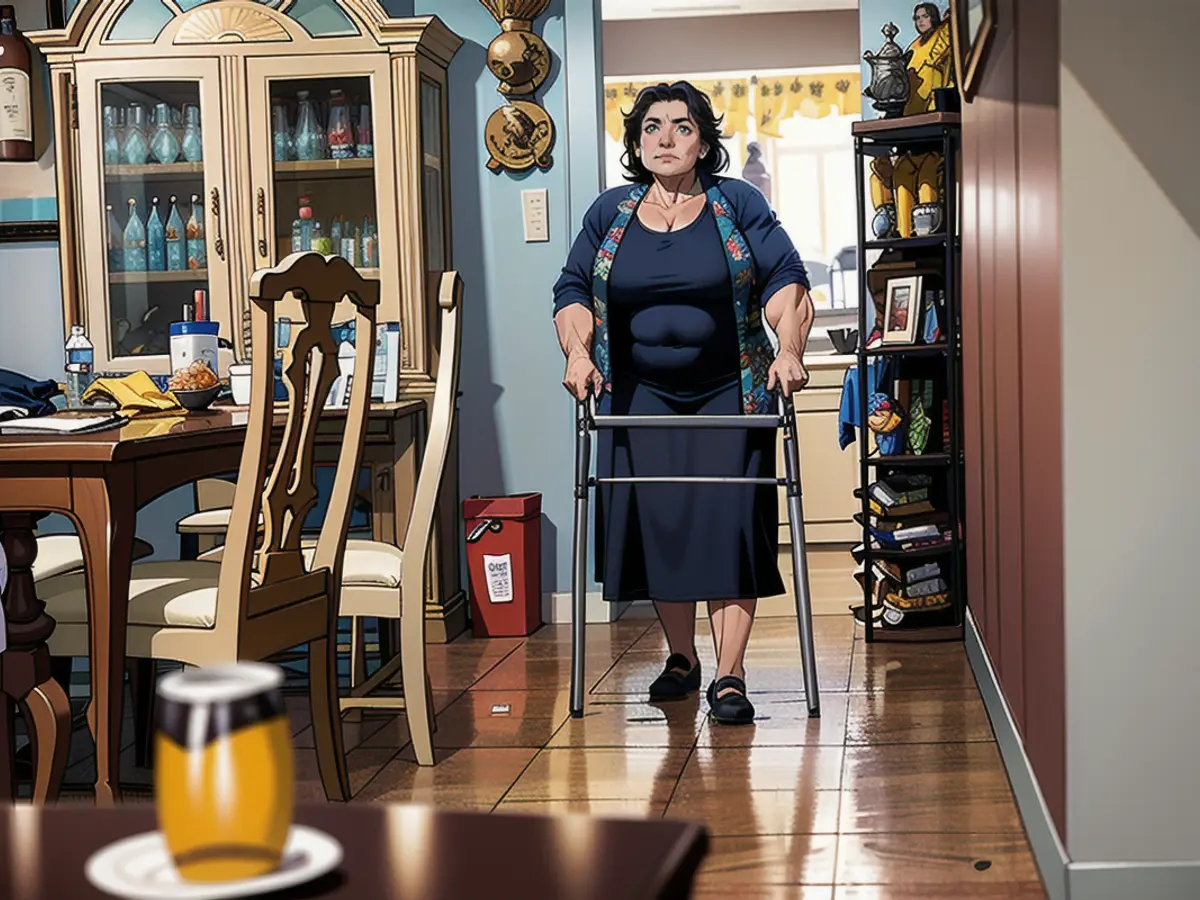Victims of gunfire during the Super Bowl celebration face remaining bullet fragments in their bodies.
A 71-year-old Mexican woman named Sarai Holguin has embraced the bullet that is still lodged near her knee, viewing it as a close friend or "compa." Meanwhile, 15-year-old Mireya Nelson, who was hit by a bullet in the jaw and broke her shoulder, continues to live with the fragments. Doctors monitor her lead levels in her blood for two years.
Almost three months after the Kansas City Chiefs' Super Bowl parade shooting caused at least 24 injuries, the process of recovering from these wounds is highly personal and raises an intriguing question in medicine - whether or not the bullets should be removed.
There's no direct answer in medical protocol regarding this issue. A survey of surgeons in 2016 showed that only about 15% of them worked at healthcare facilities with policies about bullet removal. In the United States, doctors usually leave bullets deep within a person's body to avoid causing further harm. However, as gun violence has become a public health crisis, some researchers question whether this practice is the most appropriate.
Some survivors, such as James Lemons, find themselves in a difficult situation.
"If there's a way to get it out, and it's safely taken out, get it out of the person. Make that person feel more secure about themselves," says Lemons. "You're not walking around with that memory in you."
Lemons, Holguin, and Nelson are all handling their situations differently.
Pain Led to a Dilemma
Three days after the Chiefs won the Super Bowl, Lemons drove the 37 miles from Harrisonville, Missouri, to downtown Kansas City to celebrate the win with his family. The warehouse worker was carrying his 5-year-old daughter, Kensley, on his shoulders when he felt a bullet enter the back of his right thigh.
The area was packed with revelers when gunfire erupted, according to prosecutors, following a "verbal confrontation" between two groups. Detectives found "multiple 9mm and .40 caliber spent shell casings" at the scene. Lemons understood what was happening immediately.
"I know my city. We're not shooting off fireworks," Lemons stated.
Lemons shielded Kensley's face from the ground so she wouldn't hurt herself. His priority was getting his family - which includes his wife, Brandie; 17-year-old daughter, Kallie; and 10-year-old son, Jaxson - to safety.
"I'm hit. But don't worry about it," Lemons recalls telling his wife. "We gotta go."
He carried Kensley on his shoulders while his family walked a mile to their car. His leg bled through his pants initially but then stopped, he told us. It burned with pain. Brandie insisted on driving him to the hospital, but there was standstill traffic, so she drove on the wrong side of the road.
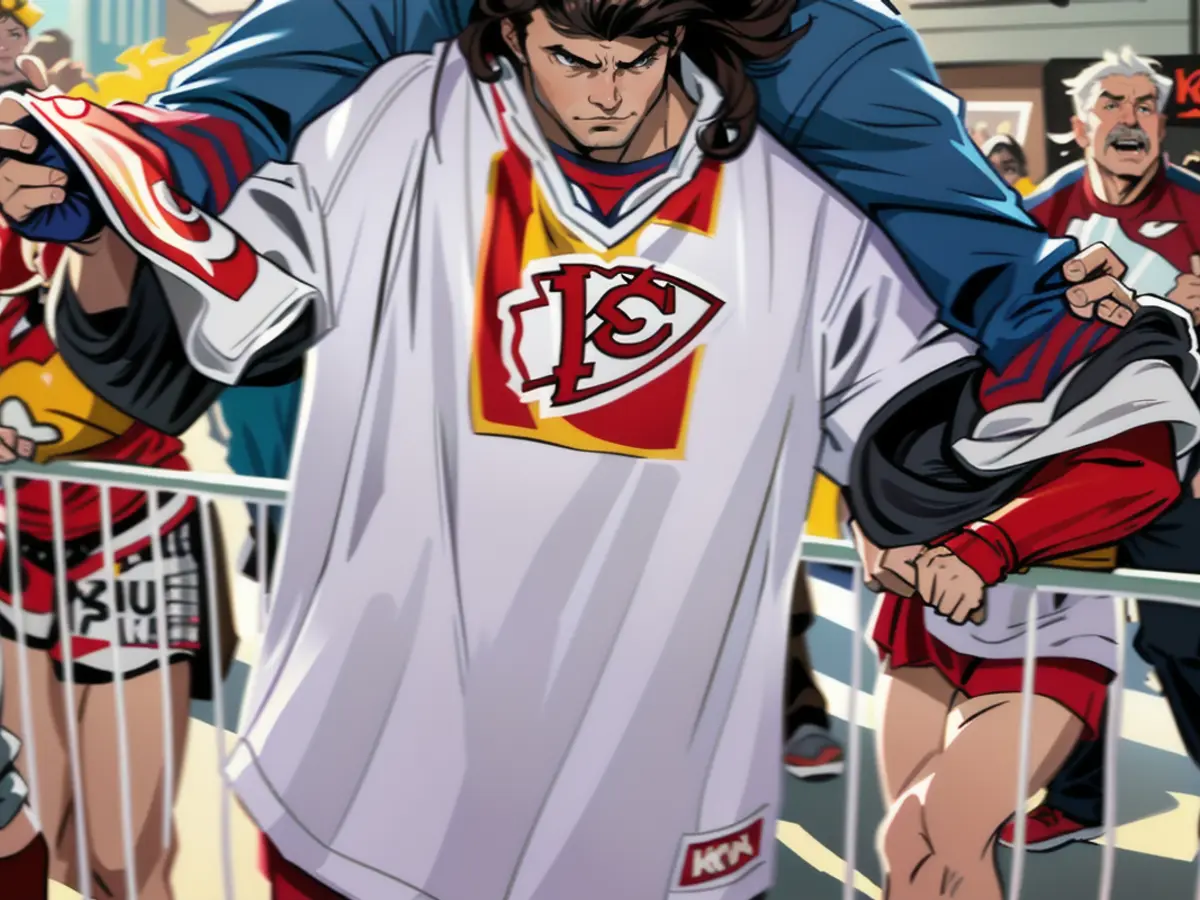
"She's like: 'I'm getting you to a hospital, I'm tired of people being in my way,'" Lemons recounted. "I've never seen my wife like that. I'm looking at her like, 'That's kinda sexy.'"
Lemons laughed at his wife's determination until they were stopped by a sheriff, who called an ambulance, Lemons added.
He was taken to University Health, which admitted 12 patients from the rally, including eight with gunshot wounds. Imaging showed that the bullet had narrowly missed an artery. Doctors cleaned the wound, put his leg in a brace, and told him to come back in a week. The bullet was still in his leg.
"I was a bit surprised by it, but I was like, 'OK, whatever, I'll get out of here'," said Lemons.
When he returned, doctors removed the brace but explained that they usually keep bullets and fragments in the body unless they become too painful.
"I get it, but I don't like that," Lemons explained. "Why wouldn't you take it out if you can?"
A spokesperson from University Health, Leslie Carto, said the hospital could not discuss individual patient care due to federal privacy laws.
Surgeons typically take out bullets during surgery or when they're in dangerous places, like the spinal canal or causing damage to an organ, said Brendan Campbell, a pediatric surgeon at Connecticut Children's.
Campbell also leads the Injury Prevention and Control Committee of the American College of Surgeons' Committee on Trauma, which works on firearm injury prevention.
LJ Punch, a trauma surgeon by training and the founder of the Bullet Related Injury Clinic in St. Louis, says the history of trauma care explains why bullets are commonly left in.
"Trauma care is war medicine," Punch said. "It's designed to be ready at any moment and any time, every day, to save a life. It's not geared to deal with the healing that needs to take place after."
In the survey of surgeons, the most common reasons for removing a bullet were pain, a palpable bullet near the skin, or an infection. Less common were lead poisoning and mental health issues like post-traumatic stress disorder and anxiety.
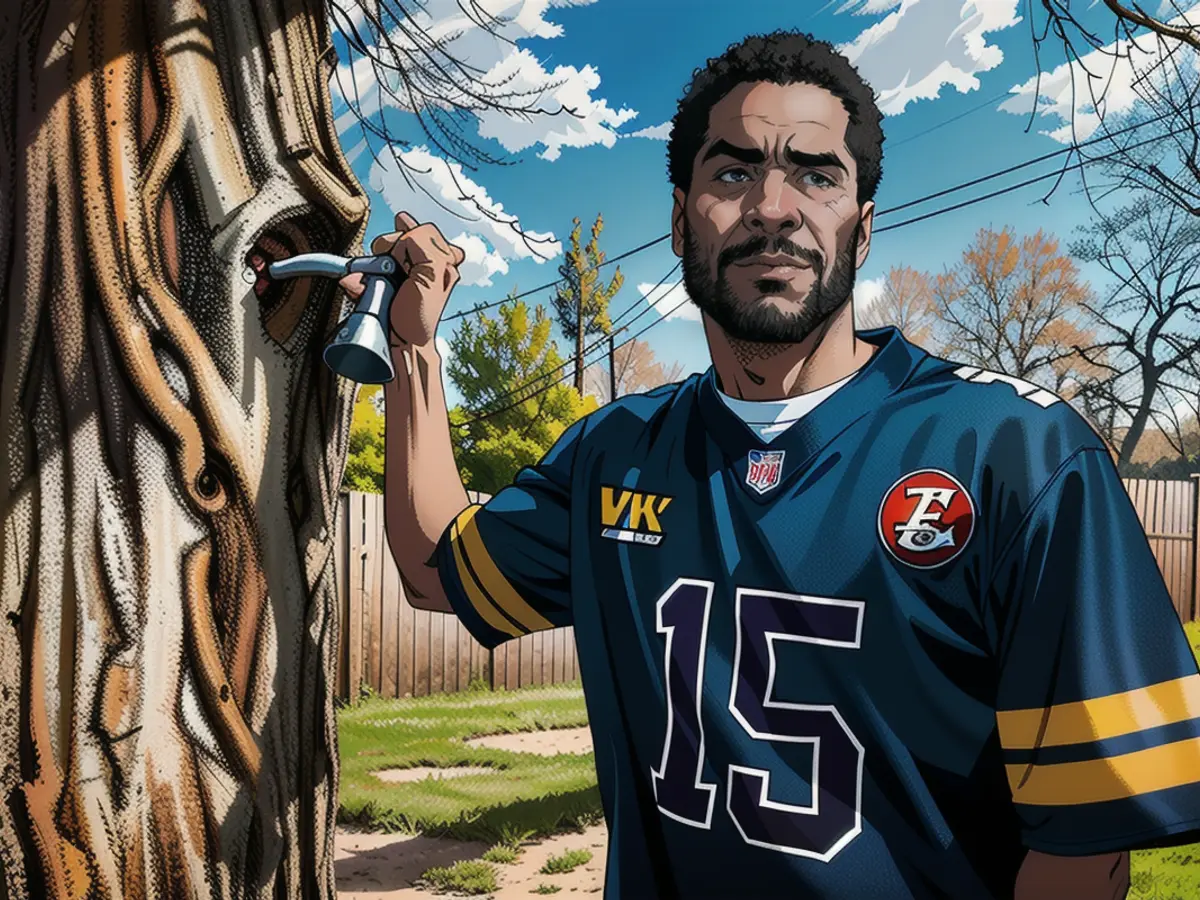
Patients' wishes also influenced their decisions, the surgeons shared.
Lemons desperately needed to get the bullet out of his leg. The agony it caused was unbearable, preventing him from moving for more than a couple of hours at a time. His warehouse job became an impossible task.
"I have to lift 100 pounds every night," Lemons recounted telling his doctors, "I have to lift my child. I can't work like this."
Losing his income and healthcare was another blow. To make matters worse, their landlord sold their rental home soon after the parade, forcing them to look for a new place to live. They managed to find a smaller house, but keeping their children in the same school district was crucial, Lemons told me from Kensley's pink bedroom - the most quiet spot in the house for a conversation.
They borrowed money and raised $6,500 on GoFundMe to help with their move and car repairs, but the parade shooting left the family financially destitute.
Without insurance, Lemons feared he couldn't afford the surgery to remove the bullet. Then he heard his procedure would be funded by donations. He made an appointment at a hospital north of the city, where a surgeon carefully measured the X-ray and explained the operation.
"You'll need to be involved as much as I am," he was instructed, "because this definitely isn't my leg."
The surgery was scheduled for this month.
'We Became Friends'
Sarai Holguin isn't a big Chiefs fan, but she agreed to accompany her friend to Union Station for the rally. It was a balmy day with parents pushing prams, children playing football, and she felt secure in the presence of numerous police officers.
Minutes before 2pm, she heard what she thought were fireworks. People started fleeing from the stage. She tried to find her friend while feeling dizzy, unaware that she had been shot. A good Samaritan placed a tourniquet on her left leg, and three people helped her to the ground.
Holguin, a native from Puebla, Mexico, who became a US citizen in 2018, had never witnessed such turmoil or seen so many paramedics working under immense pressure. She referred to them as "anonymous heroes."
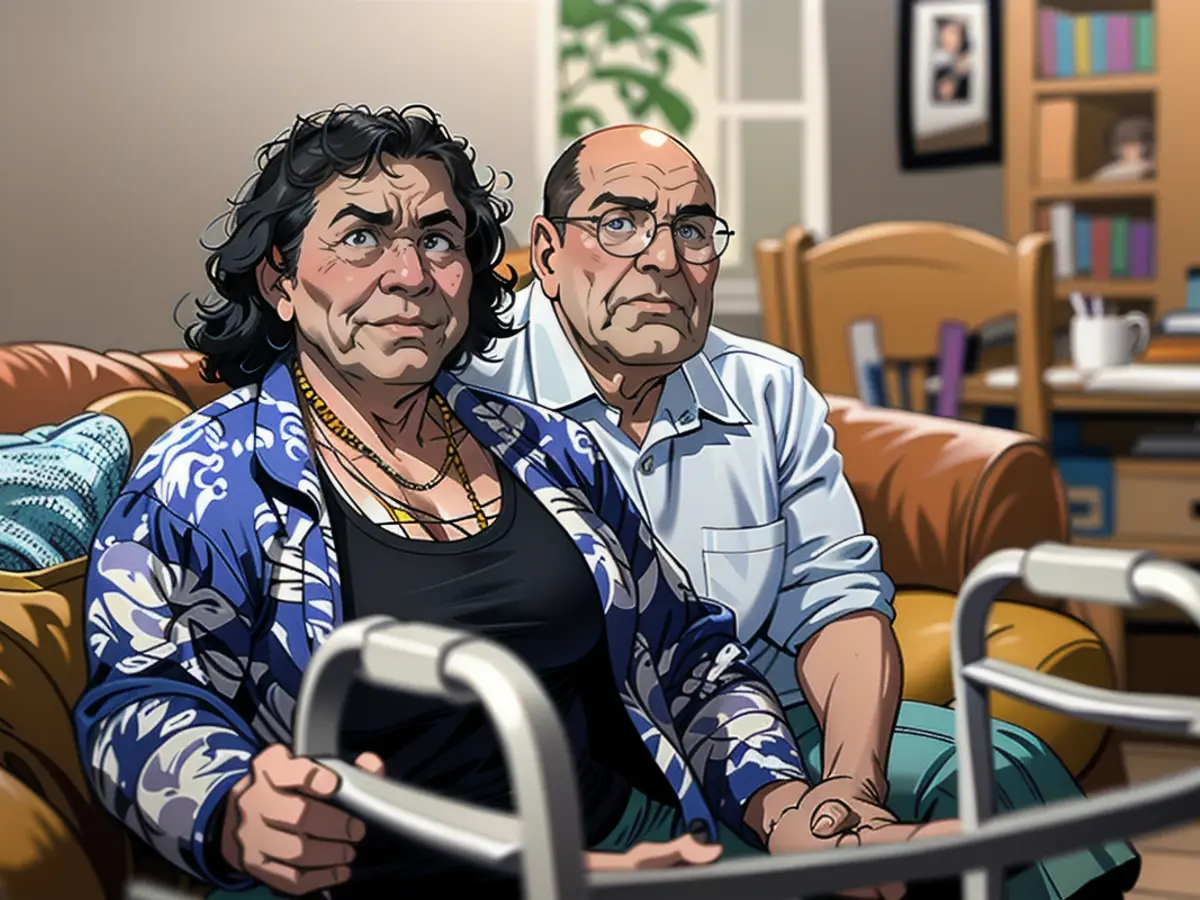
She watched them attend to Lisa Lopez-Galvan, a popular DJ and 43-year-old mother of two. Lopez-Galvan perished at the scene, becoming the sole fatality. Holguin was transported to University Health, just a few minutes away.
At the hospital, physicians operated on her, leaving the bullet in her leg. Holguin awoke to further pandemonium. She had lost her purse besides her cellphone, so she was unable to contact her husband, Cesar. She was admitted under an alias, a common practice for quick medical attention.
Her husband and daughter only found her around 10pm - nearly eight hours after she had been shot.
"It has been a massive trauma for me," Holguin said through a translator, "I was injured and admitted to the hospital without any fault of mine. The rally was a moment to play, to unwind, to be with each other."
Holguin remained in the hospital for a week, with several follow-up outpatient surgeries for decaying tissue around the wound. She wore a vacuum-assisted closure device for weeks, and had daily medical appointments.
Campbell, the trauma surgeon, explained that wound VACs are typical when bullets harm tissue that is hard to reconstruct during surgery.
"It's not just the physical injuries," Campbell added, "but often the emotional, psychological injuries which many patients carry with them.”
The bullet is still close to Holguin's knee.
"I'll have it for the rest of my life," she shared with a smile, adding that they've become "compas", close friends.
Punch, from the Bullet Related Injury Clinic in St. Louis, pointed out that some individuals, like Holguin, can psychologically acclimate with bullets that remain in their body.
"If you're able to frame what the bullet means in your life, that offers power, agency and choice," Punch said.
Holguin's life changed abruptly: She's dependent on a walker to get around. Her foot displays symptoms akin to a stroke - it dangles, and it's hard to move her toes.

The most dejecting side effect was the inability to travel and see her 102-year-old father, still in Mexico. She has a live camera feed on her phone to check on him, but it doesn't offer much relief, she stated, and thinking about him makes her tear up.
She discovered at the hospital that her medical bills were supposed to be covered, but then numerous invoices began arriving in the mail. Attempts to acquire support from the state of Missouri's victim assistance programs were unsuccessful due to the fact that all the forms she owned were in English, making them hard to comprehend. The cost of renting a wound-vacuum device alone amounted to $800 every month.
Ultimately, she learned that the Mexican Consulate in Kansas City could assist her, and the consul directed her to the Jackson County Prosecutor's Office. She enlisted with them as an official victim, and as a result, her expenses are now being covered, as she stated.
Holguin, unlike others, does not intend to seek mental health treatment, since she believes continually living with a particular situation can lessen its burden.
"I have come to terms with this new part of my life," Holguin said. "I've never given up, and with God's help, I'll proceed."
An Unforeseen Event during the Parade
Mireya Nelson missed the start of the parade. Her mother, Erika, had cautioned her to leave early, given the heavy traffic and the expectation of a million people gathering in downtown Kansas City. However, Mireya and her teenage companions chose to ignore this counsel. The Nelsons live in Belton, Missouri, about 30 minutes south of the city.
Mireya yearned to grasp the Super Bowl trophy. Upon their arrival, the parade that had moved through downtown had ended, and the rally at Union Station was underway. The massive crowd overwhelmed them, and they quickly grew bored.
As they tried to contact the driver of their group, their phones lost service due to the immense throng around them.
All of a sudden, amid the commotion and ruckus, Mireya fell.
"I observed blood on my hands. That's when I realized I had been shot. I just crawled to a tree," Mireya explained. "I didn't fully understand where I was hit at, initially. I just saw blood on my hands."
The bullet grazed Mireya's jaw, passed through her shoulder, and exited through her arm, leaving bullet shards embedded in her shoulder. Doctors opted against removing these fragments, given the severe harm she had already sustained.

Mireya's mother supports this decision for the time being, acknowledging the fragments as being only "fragments."
"I imagine if they're not going to harm her for the rest of her life," Erika said, "I don't want her to keep going back to the hospital for additional operations and more therapy."
Dr. Punch, an expert in bullet injuries, asserted that these remnants frequently protrude from the skin like splinters. Moreover, he emphasized the need for a comprehensive approach to recover from all the trauma - not just the physical aspects.
"When individuals linger in their trauma, this trauma can change them for their entire lives," Dr. Punch said.
Mireya will be examined for lead levels in her blood for at least two years. For now, her levels are healthy, but if they grow worse, she may require surgery to remove the shards, her mother disclosed.
Campbell, a pediatric surgeon, indicated that lead is a special concern for young children, whose developing minds make them more susceptible to its harmful effects. Even a minuscule amount of lead - 3.5 micrograms per deciliter - is sufficient to report to the authorities, according to the Centers for Disease Control and Prevention.
Mireya talks about teenage boys affectionately but still wears Cookie Monster pajamas. She shows signs of confusion regarding the shootings as well as the attention she's receiving at home, at school, and from the media. When asked about her opinions on the shards in her arm, she replied, "I don't really care for them."
Mireya spent ten days on antibiotics following her hospital stay, as doctors were apprehensive about potential bacteria in her wound. She's undergone physical therapy, but the exercises cause considerable pain. She bears a scar on her chin. "A dent," she remarked, that is "bumpy."
"They explained that if she hadn't shifted her head in a specific manner, she could be gone," Erika said.
Receive CNN Health's weekly newsletter
Register here for The Results Are In with Dr. Sanjay Gupta from the CNN Health team every Tuesday.
Mireya wanted to preserve the bullet that went through her arm, curious about its type. Her mom let out a sigh, suspecting her daughter had watched too many episodes of "Forensic Files."
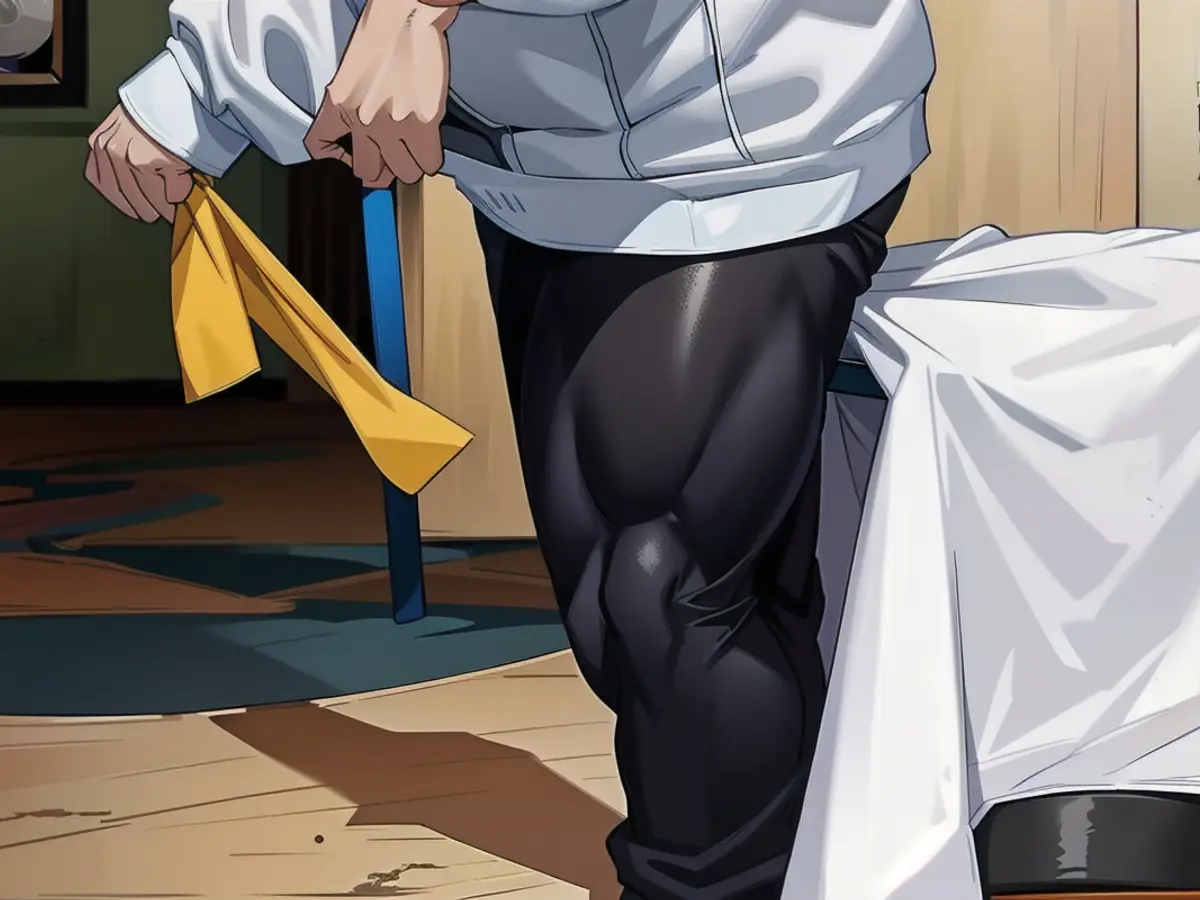
Erika beats herself up over the incident, regretting she couldn't protect her child at the parade.
"It's tough on me because I feel guilty for not being there with her, she begged me to take time off from work and I couldn't, since I'd just started a new job," Erika admitted. "Had I been there, I'd have taken the bullet instead. I'd do anything in mom mode."
This story was produced as part of a collaboration between KCUR and KFF Health News, an independent source for health policy research, polling, and journalism.
Read also:
- No food or coffee for three days, just juice, juice, juice instead: a field report
- How to get rid of the flu if you have caught it
- Doctors warn of penis fractures and other injuries during the Christmas season
- Corona or flu epidemic? These pathogens are making us cough and sniffle right now
- After learning about James Lemons' situation, some surgeons might consider the possibility of removing bullets like the one in Lemons' leg, even if it's not usually practiced in the US.
- Despite the discomfort caused by the bullet, Sarai Holguin has come to terms with keeping it in her body and views it as a "compa," referring to the close friendship she's formed with this object.
Source: edition.cnn.com
